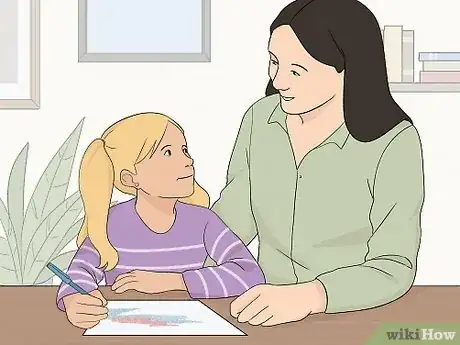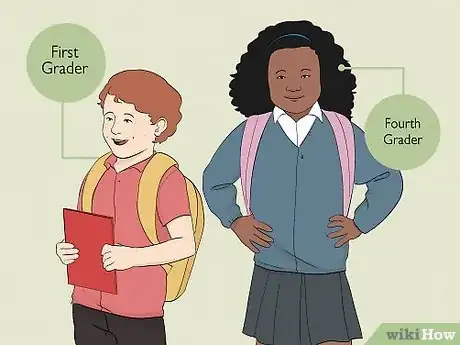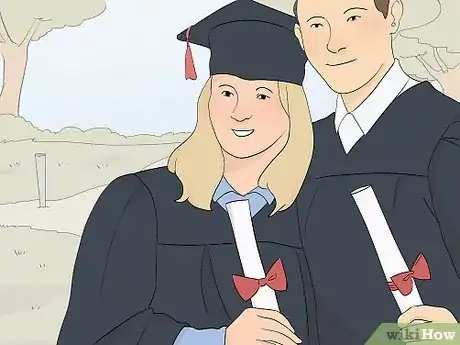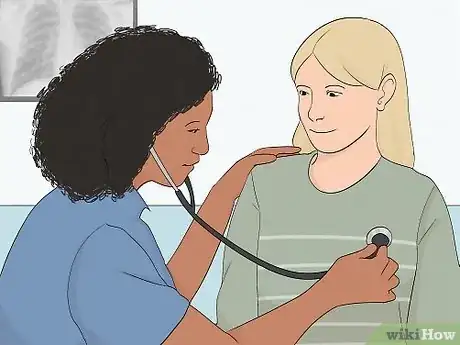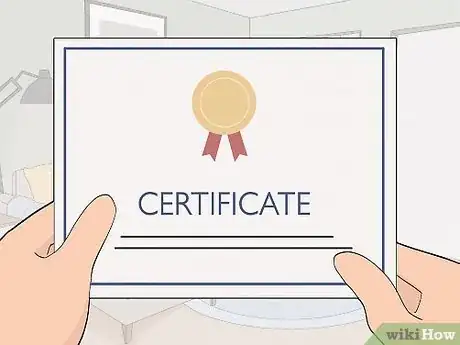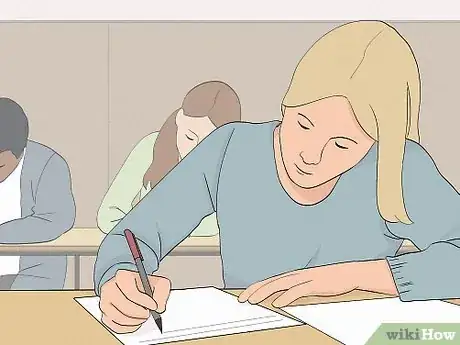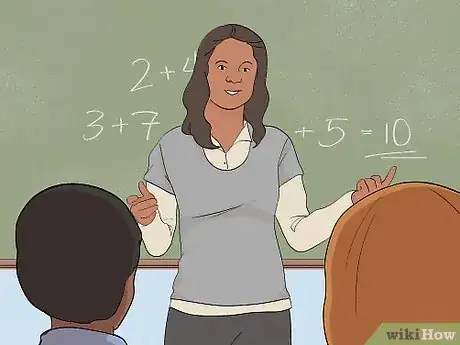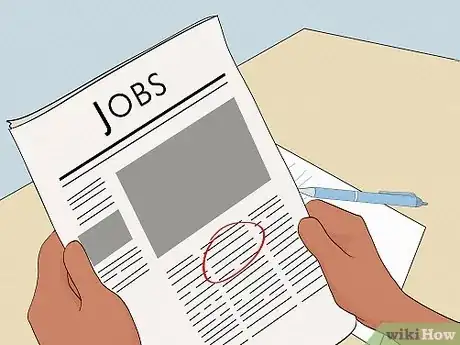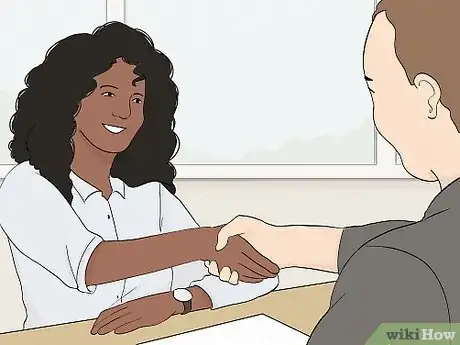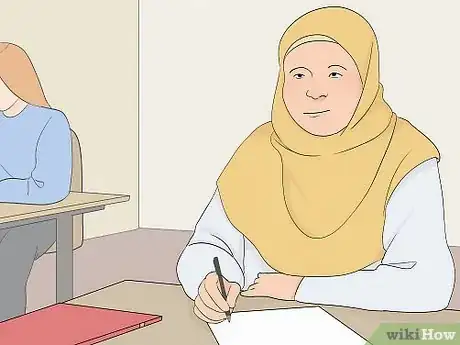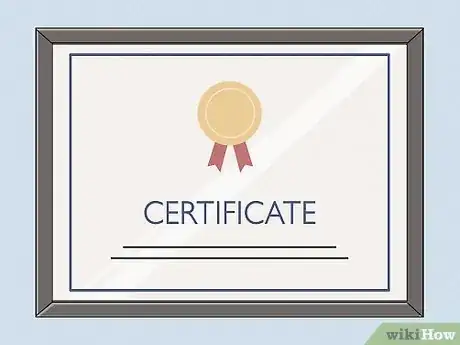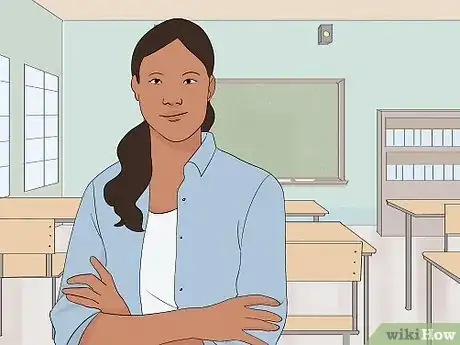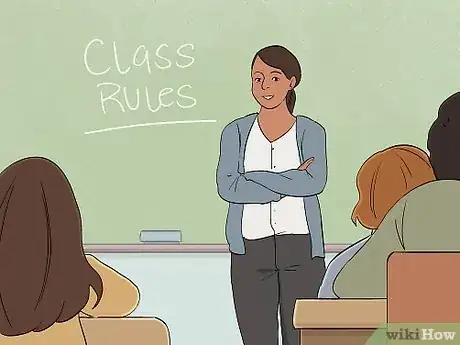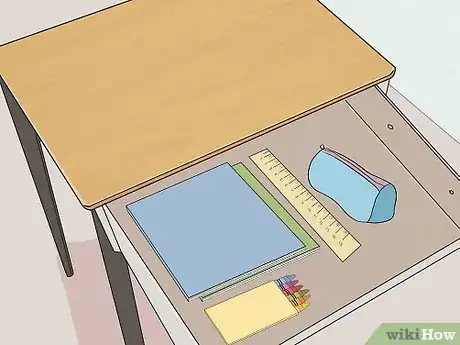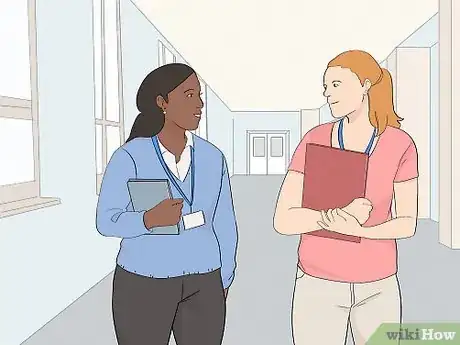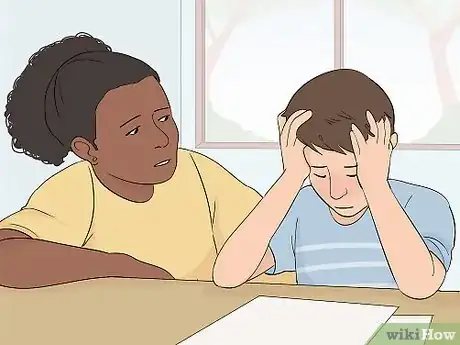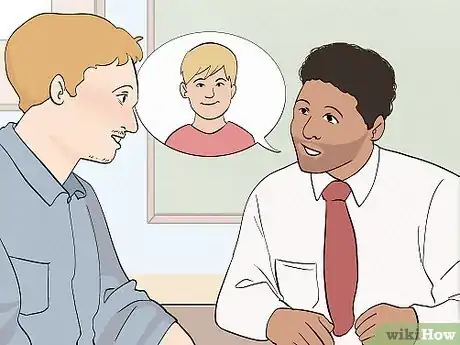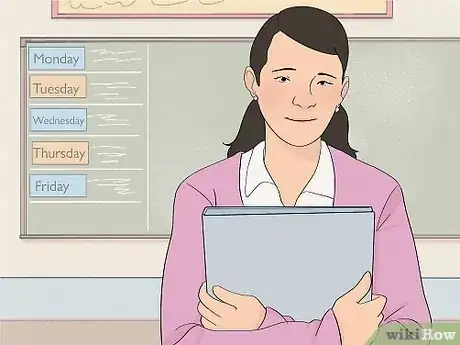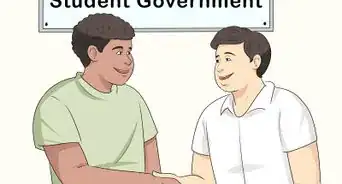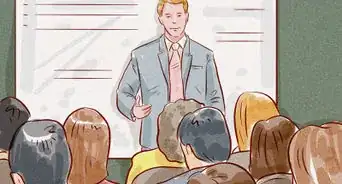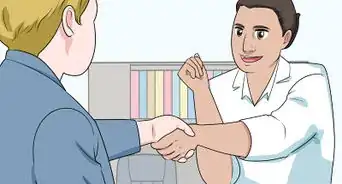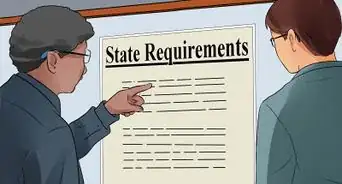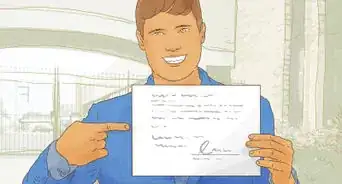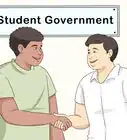This article was co-authored by Ashley Pritchard, MA. Ashley Pritchard is an Academic and School Counselor at Delaware Valley Regional High School in Frenchtown, New Jersey. Ashley has over 3 years of high school, college, and career counseling experience. She has an MA in School Counseling with a specialization in Mental Health from Caldwell University and is certified as an Independent Education Consultant through the University of California, Irvine.
There are 15 references cited in this article, which can be found at the bottom of the page.
This article has been viewed 37,930 times.
Teaching at a primary school means working with young children on basic educational skills. It can be a very difficult, but also a very rewarding profession. If you think you are ready to teach children the basics of education, and inspire them into becoming lifelong learners, then you should look into become a primary school teacher.
Steps
Getting the Training and Certification
-
1Have the right skill set. It takes a certain kind of person to work well with young children, where classroom management is just as important passing on knowledge. If you don’t approach teaching with the right skill set and attitude, you will not enjoy the job, and have difficulty getting work.[1] [2]
- Enjoy being around children. Teaching young kids isn’t for everyone, so you’ll need to be prepared to spend your whole day with them. Children aren't always the clearest at explaining themselves. You will need to be a good listener, and able to understand their perspective and what they are trying to say.
- Have good organizational and time management skills. These are important not only for governing yourself, but also helping to pass them on to your students.
- Be attentive. Especially when working with young children, you need to be able to pay attention and predict dangerous situations, keeping an eye out for their safety.
- You will need imagination and creativity to get in touch with your students, and make them want to learn.
- If you have additional skill in an outside area of knowledge, like music, art, or sport, that will give you another advantage in applying for jobs and reaching your students.
-
2Decide the age group you want to work with. Primary schools around the world are usually divided into several stages based on age that follow national and local curriculum standards. You’ve probably already decided what ages you are most comfortable working with, but it is good to know when you start looking and applying for jobs.[3]Advertisement
-
3Get a bachelors degree. All teachers need an undergraduate degree from an accredited higher education provider in your country of residence. If you want to teach at the primary school level, majoring in Education or getting a bachelor of education degree (BEd) is the best program for when you start school.[4]
- You can certainly study other subjects in college. Degrees in specific subject areas that you will cover as a teacher, like English, science, or mathematics, will increase your chances of being selected for postgraduate courses. Application committees will examine other degrees to see if they are relevant to teaching primary-age students.
- A Masters degree can give you a bump in pay, but you don't need this type of degree to become a teacher.[5]
-
4Get a medical examination. Before you start a teacher training program, you may need to take a fitness exam. If you have a learning disability, this is a good place to list it or find out, as most programs will be able to adjust the learning and examination style to account for this.[6]
-
5Get certified as a teacher. Most countries around the world require additional certification before becoming a teacher for any grade. Requirements and programs for certification vary as depending on where you live, so make sure you are familiar with national and regional laws. If you aren’t certified, or in the process of getting certified, schools won’t hire you.
- In the United States, each state controls requirements for teacher certification, and those will vary depending on the state. In each case, the state will expect you to demonstrate an understanding of the state’s subject material standards, as well as best practices for teaching young children.[7]
- In the United Kingdom, Qualified Teacher Status (QTS) is necessary to be hired as a teacher. In Scotland, the same rank is referred to as a Teaching Qualification (TQ). The easiest way to get QTS is to get a BEd or BA/BSc with QTS. If you did not do that in college, you will need a Postgraduate Certificate in Education (PGCE). You can receive this through a graduate school, School-Centered Initial Teacher Training (SCITT), or the Teach First programme.[8] [9] [10]
- You'll have to take extra steps to work at a private school—it depends on what the school wants.[11]
-
6Pass the certification test. Once you have finished coursework, you will need to pass a government issued skills tests in your subject area. In addition to testing your knowledge of the subject matter, you will also be asked questions that deal with the teaching profession, as well as analyze real information you will encounter in the classroom.[12]
-
7Get classroom experience. Before you enter teacher training, you will need some time in the classroom. There really is no substitute for time in the classroom when preparing for a teacher career. Most degree or certificate programs will provide experience as part of their training, and every bit you can get before starting will make you a more attractive candidate.
- One good way to get some classroom experience is to volunteer in local schools. In addition to showing your desire to become a teacher, it can also give you additional experiences to reference when you apply for a job. Talk to your local school and see if they will let you shadow a teacher, or volunteer as an unofficial classroom assistant.[13] [14]
- If you can’t get to a school to volunteer, there are other areas you can work with young children that will give you good experiences you can translate to the classroom. These include mentoring, summer play and camps, Scouting, and Sunday schools.[15]
Getting a Job and Maintaining Your Credentials
-
1Look for jobs. Once you know what kind of job you would like to have, you will need to get hired by a school. Teaching positions are advertised in the usual places, including in the local papers and online job sites. In addition, you can also learn about job openings through word of mouth.
- If you are interested in working in a particular school district, their website would be a good place to look for specific openings they might have.
- The more flexible you can be with your location, the more jobs will be open to you. To maximize your chances, you will need to be willing to move to a variety of places to land a primary school teaching job.
- If you achieved QTS through a SCITT program, chances are the school was training you for a specific position, so you are probably likely to get that job, at least as a career-starter.
- Because of the higher staff turnover, there will likely be more jobs available in inner city schools.
- You're going to have to jump through more hoops if you're working for a private school.[16]
-
2Prepare for your interview. Before getting hired you will need to interview with people at the school. Think of it as an opportunity to explain your strengths as a candidate, and how your training and experience will make you a good teacher. With a little preparation, you can be prepared to give good answers to questions interviewers will likely give you.
- Your interview will probably cover trends and issues in the teaching profession. Make sure you are familiar with the big issues and some of the key buzz words. Research the school you are interviewing at ahead of time to see if there are certain issues important to them, and make sure to mention them while talking to the school.
- This is a good opportunity to talk about your past classroom experiences. You don’t want to just list them. Instead, be prepared to explain specific instances that were helpful in developing your philosophy in the classroom, or making you want to become a primary school teacher.
- Look for things you like about the school, and find opportunities to bring them up. Even a simple idea like “I really like what you are doing with classroom development, I think it’s a really good idea” can be helpful. It shows that you know something about the school, and tells the interviewers that you would be a good fit for them.[17]
-
3Continue with professional development classes. Getting hired and starting with a class is just the beginning of your training as a teacher. Most teachers are encouraged to get additional training. This will help them see new trends in educational theory and practice, as well as new programs and technology to help students learn.[18]
- If you are a newly qualified teacher, that is you only recently passed your exams, you will serve a probationary period. This will involve monitoring and support, and a designated tutor who will help to identify areas for improvement. Following these suggestions will make you a better instructor to your students, and a better colleague to other teachers.
- Schools will likely highlight and offer continuing professional development classes based on the position you hold, or any positions you wish to rise to. These classes will usually take place at your school on designated teacher training days, or on off-site training centers.
-
4Keep your certification. In the United States, your teacher certification will regularly come up for renewal. There are a variety of state and federal requirements involving continuing education and professional development in order to maintain your certification. Keep an eye on what you need to do, and make sure you keep up with the standards.
Doing Well in the Classroom
-
1Be yourself in the classroom. You probably got into teaching primary school because you have a passion for working with younger children as they start their education. Make sure your students know that you are there to help them, and that they can approach you with any question or problem.
- While you will need to enforce discipline, you should ignore silly advice such as “don’t smile until Christmas.” Let your students see your energy and enthusiasm for learning, and they may learn to love it with you.[19]
-
2Keep your expectations clear. As you create assignments and discipline your class, make sure everyone is clear about what is expected. That way there aren’t any surprises when you give out grades or punishment, and students can learn good behaviors.
- Make sure you explain your rules and expectations on the first day, and review during the first week. You can even send those rules and expectations home to parents so they are also clear on what you are expecting from the class.[20]
- Just remember that this is your class. Your students will probably come from a variety of backgrounds and have had many different teachers with different rules before you. That’s fine, but you don’t have to follow those rules if you don’t want to.
-
3Help your students with organization. Primary school can be a difficult time for students because not only are they learning new academic material, but they are also learning real organizational skills. Many of them will not know what to do. Take time during class to show students how to organize their materials and keep their desk clean.[21]
-
4Talk to other teachers. Teaching is a job that only gets easier with experience. The best resource you will have for resolving student issues are those who have been through it before. Compare notes on individual students, behavioral issues, assignments, projects, or anything else that might improve the classroom experience for both you and your students.[22]
- You should familiarize yourself with the teachers your students have had in the years before you. Those instructors will have additional insight into behavior, strengths, and weaknesses.
- This is also important because the other teachers are your colleagues, the people you will see not just every day, but every school year as well. Having a good relationship with them will make it easier and more fun to come in every day.
-
5Learn your school’s behavior policies. Discipline will be an important part of your day when dealing with school children. Make sure you know and are familiar with your school’s guidelines for dealing with disruptive or unruly students.[23]
- In most cases, you will be able to deal with discipline issues yourself rather than get administrators involved. This will be tough at first, but can get easier as you see the same kinds of problems, and figure out the best ways to deal with them.
- Look for opportunities to turn misbehavior into a teachable moment. Talk to the student about how they could've behaved differently, and help them look at the bigger picture.[24]
-
6Get to know the parents. Your students’ parents will have a strong influence on their ability to do well in school. In addition, they may well know the most about their child’s learning abilities, and other parts of the kid’s personality that you won’t always pick up in the classroom. Getting along well with parents will make your job easier.[25] [26]
- Regular parent-teacher conferences can be an important part of keeping parents involved with their student’s well being, and giving you an insight into your student’s home life. Instead of just telling the parents about how they are doing in school, make sure you ask about what kids have said about the class, or if there are particular thoughts the parents might have about their child’s progress.[27]
- Look for regular opportunities to get parents involved with their children. Ask for volunteers for the classroom. It can even be something as simple as standing outside the door when parents arrive for drop-off and pick-up to chat with them briefly, or inviting them into the classroom for a minute after school to see some of their child’s work.
-
7Be patient with yourself. Not every lesson will be great, and not every student will get all the material perfectly. As a new teacher, you will need experience to guide you for the best ways to reach as many of your students as possible. Don’t let your own self-worth and confidence suffer because of a few bad days.[28]
- It can also be helpful to remember that you will have successes every day as well. Make sure you take note of them, and reward yourself when they happen.
Expert Q&A
-
QuestionHow do I get certified to teach in California?
 Courtney CoprivizaCourtney Copriviza is an Elementary School Teacher based in Maui, HI. Courtney specializes in elementary education, classroom management, and social and emotional development. She holds a BA in Communication with a minor in Urban Education and an MA in Teaching from Santa Clara University. Courtney has also taught high school in Madrid, Spain. She is a member of Kappa Delta Pi International Honors Society in Education.
Courtney CoprivizaCourtney Copriviza is an Elementary School Teacher based in Maui, HI. Courtney specializes in elementary education, classroom management, and social and emotional development. She holds a BA in Communication with a minor in Urban Education and an MA in Teaching from Santa Clara University. Courtney has also taught high school in Madrid, Spain. She is a member of Kappa Delta Pi International Honors Society in Education.
Elementary School Teacher In California, you get your primary credential first. Then, you work toward clearing that credential through a BTSA program.
In California, you get your primary credential first. Then, you work toward clearing that credential through a BTSA program. -
QuestionWhat particular subjects do I need to become a primary teacher?
 Community AnswerYou'll need to understand early childhood education and development.
Community AnswerYou'll need to understand early childhood education and development. -
QuestionHow long does it take to become a teacher?
 Community AnswerIt takes four or five years of college after primary and secondary school.
Community AnswerIt takes four or five years of college after primary and secondary school.
References
- ↑ https://www.prospects.ac.uk/job-profiles/primary-school-teacher
- ↑ https://targetjobs.co.uk/careers-advice/job-descriptions/279177-teacher-primary-job-description
- ↑ https://www.prospects.ac.uk/job-profiles/primary-school-teacher
- ↑ http://www.telegraph.co.uk/education/4126562/Top-10-ways-to-get-into-teaching.html
- ↑ Courtney Copriviza. Elementary School Teacher. Expert Interview. 18 June 2021.
- ↑ https://www.ucas.com/ucas/teacher-training/getting-started/entry-requirements
- ↑ http://www.fldoe.org/teaching/certification/administrative-rules/6a-4-0151.stml
- ↑ https://www.prospects.ac.uk/job-profiles/primary-school-teacher
- ↑ https://getintoteaching.education.gov.uk/explore-my-options/school-led-training/school-direct
- ↑ https://www.teachfirst.org.uk/
- ↑ Courtney Copriviza. Elementary School Teacher. Expert Interview. 18 June 2021.
- ↑ https://getintoteaching.education.gov.uk/passing-the-skills-tests
- ↑ https://www.ucas.com/ucas/teacher-training/getting-started/entry-requirements
- ↑ http://www.telegraph.co.uk/education/4126562/Top-10-ways-to-get-into-teaching.html
- ↑ https://www.prospects.ac.uk/job-profiles/primary-school-teacher
- ↑ Courtney Copriviza. Elementary School Teacher. Expert Interview. 18 June 2021.
- ↑ https://getintoteaching.education.gov.uk/sites/default/files/pdfs/Steps_to_becoming_a_teacher_all_transcript.pdf
- ↑ https://www.prospects.ac.uk/job-profiles/primary-school-teacher
- ↑ http://www.theguardian.com/teacher-network/teacher-blog/2014/sep/09/primary-school-newly-qualified-teacher-10-things-need-to-know
- ↑ http://www.educationworld.com/a_curr/curr152.shtml
- ↑ http://www.educationworld.com/a_curr/curr152.shtml
- ↑ https://nationalcareersservice.direct.gov.uk/advice/planning/jobprofiles/Pages/primaryschoolteacher.aspx
- ↑ http://www.theguardian.com/teacher-network/teacher-blog/2014/sep/09/primary-school-newly-qualified-teacher-10-things-need-to-know
- ↑ Ashley Pritchard, MA. School Counselor. Expert Interview. 4 November 2019.
- ↑ http://www.theguardian.com/teacher-network/teacher-blog/2014/sep/09/primary-school-newly-qualified-teacher-10-things-need-to-know
- ↑ https://nationalcareersservice.direct.gov.uk/advice/planning/jobprofiles/Pages/primaryschoolteacher.aspx
- ↑ http://www.ascd.org/ascd-express/vol6/612-wilson.aspx
- ↑ http://www.theguardian.com/teacher-network/teacher-blog/2014/sep/09/primary-school-newly-qualified-teacher-10-things-need-to-know
About This Article
To be a primary school teacher, you’ll need to have lots of patience since you’ll be spending your whole day with young children. You should also be creative and imaginative in order to make your students want to learn. Along with the right skills, you’ll have to obtain a bachelor of education degree and get practical experience in the classroom through your school’s student teaching program. After graduation, prepare to take the exam required by your state in order to earn your certification before applying for jobs. For more advice, including how to set clear expectations and maintain discipline in the classroom, keep reading.
